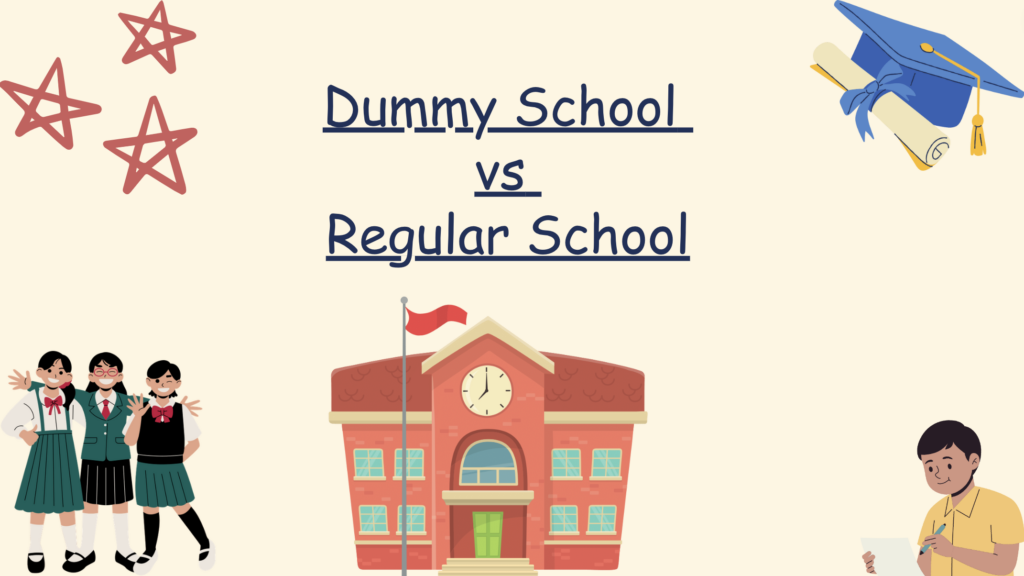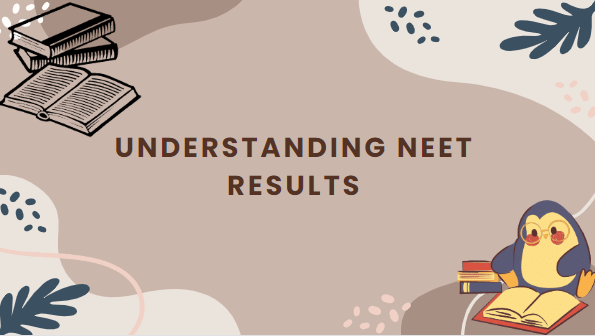
Dummy School vs Regular School For JEE & NEET
Dummy School vs Regular School: As students transition from 10th to 11th grade, a crucial decision awaits them: should they opt for a dummy or regular school? In this blog post, we delve into the subject and offer valuable insights to help students make an informed choice.
What is a Dummy School – Understanding the Concept

Contrary to popular belief, dummy schools are not vacant institutions. Instead, they refer to schools that are more lenient with attendance requirements. These schools prioritize practical assessments but leave the responsibility of CBSE board exams to the students themselves. It is important to note that dummy schools cater primarily to students who lack access to schools offering comprehensive coaching for competitive exams, such as JEE, NEET, or CA Foundation in their vicinity.
Are Dummy Schools Good? Making an Informed Choice –
Dummy School vs Regular School for JEE and NEET
If your ultimate goal is to crack competitive exams like JEE and NEET or pursue commerce with a focus on the CA foundation, and your local schools do not provide coaching for these exams, opting for a dummy school can be a viable choice. However, it is crucial to supplement this decision by enrolling in a reputable coaching institute or online course to ensure comprehensive exam preparation.
Why CBSE-Focused Regular Schools?
Some regular schools strictly adhere to the CBSE curriculum without prioritizing competitive exam preparation. These schools maintain a regular attendance policy and emphasize practical lab participation. If your primary aim is to excel in board exams and pursue further studies in traditional colleges, regular schools following the CBSE curriculum can be suitable.
Regular Schools with Comprehensive Entrance Exam Preparation
Certain regular schools go beyond the CBSE curriculum and provide dedicated coaching for both board exams and competitive exams. These institutions boast qualified teachers with expertise in exam-oriented training. If such schools are available in your locality and align with your career goals, joining them can provide significant advantages.
Regular School vs Dummy School – Key Considerations
- Thorough Research: Conduct thorough research to identify the available school options in your area. Seek recommendations from peers and individuals with experience with schools offering comprehensive competitive exam preparation alongside regular academics.
- Personal Preference: Consider your individual learning style, preferences, and long-term goals. Reflect on whether a regular school or dummy school will best cater to your needs and facilitate the achievement of your aspirations.
- Complementing Coaching: If you opt for a dummy school, ensure that you simultaneously enroll in a reliable coaching program outside of school to compensate for the absence of competitive exam preparation within the institution.
Read: Class 11 Exams: Avoid These Common Mistakes
Conclusion
As students enter the 11th grade, choosing between a dummy school and a regular school becomes critical. Take into account your aspirations, the availability of coaching programs, and the overall learning environment when making this choice. Each student is unique, and what works for one may not work for another. Seek guidance, and carefully evaluate your options.



